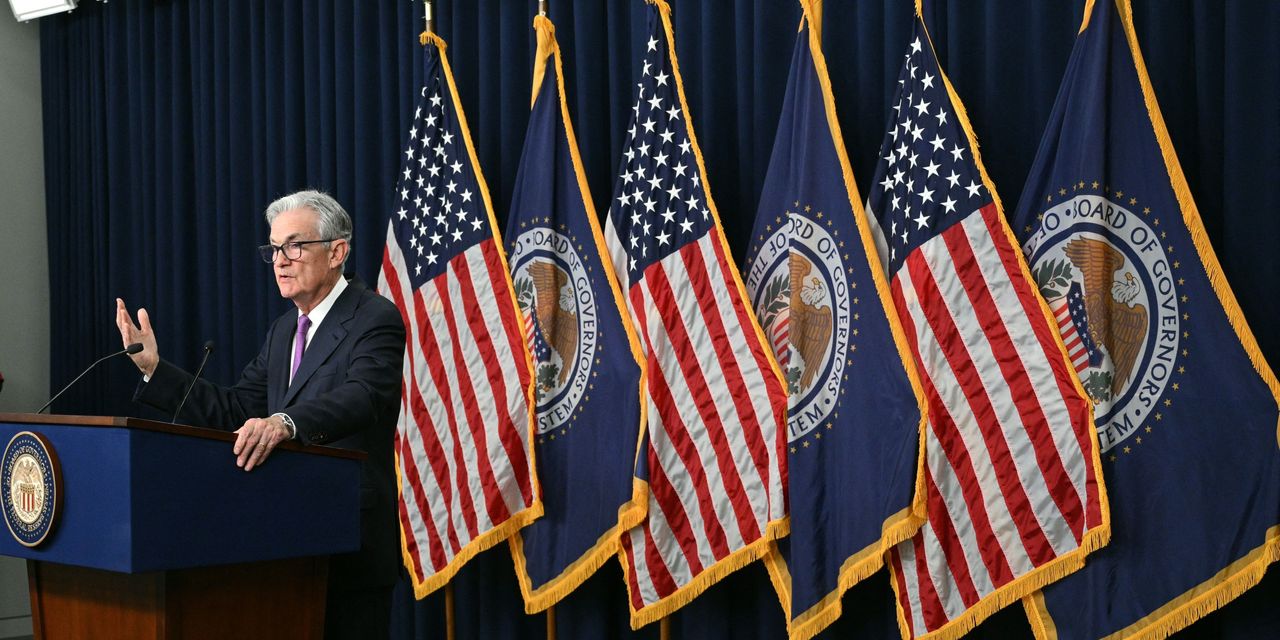The Federal Reserve is close to ending a cycle of interest-rate hikes designed to stamp out high inflation. And now the political chaos in Washington could raise an already high bar for another rate hike.
The Fed two weeks ago left its key short-term U.S. interest rate unchanged, but it also signaled it could approve one more increase this year if inflation didn’t continue to slow.
Yet even before the trouble in the nation’s capitol, Wall Street investors and many economists were skeptical the Fed would pull the trigger again.
Just 19% of investors see a rate hike in November and only 32% bet on an increase in December, according to a popular Fed forecasting tool.
How come?
The economy and labor market both appear to be cooling off and inflation is gradually moving toward the Fed’s 2% goal. The rate of inflation has fallen to 3.7% as of September from a 40-year peak of 9.1% in mid-2022.
“Our forecast is for no more rate hikes and I feel increasingly comfortable with that call,” said lead U.S. economist Nancy Vanden Houten of Oxford Economics.
Part of the reason the Fed sat on the sidelines in September is because senior officials expect the rapid increase in interest rates over the last year and a half to further depress the economy. The central bank has ratcheted up its benchmark short-term rate to as high as 5.5% from near zero in spring of 2022.
Higher interest rates have taken a big toll on key parts of the economy like housing that are very sensitive to borrowing costs. Mortgage rates are getting close to 8%, for instance.
Adding to the stress on the economy is a sudden and surprising surge in long-term interest rates not controlled by the Fed. Treasury bond yields have soared, making it more expensive for businesses and government to borrow.
“The market is already doing their work for them,” said chief economist Richard Moody of Regions Financial. “It would be overkill.”
The Fed’s next meeting on interest rates is Oct 31-Nov. 1, at least a few weeks before a possible U.S. government shutdown if a 2024 budget cannot be agreed or current spending levels extended. Senior Fed officials will see several more reports on inflation and jobs, including the September employment report on Friday.
Only a batch of strong jobs growth and higher inflation would force the Fed’s hand, economists say.
The earliest a government shutdown could happen is in mid-November. The U.S. House last week passed a temporary 45-day spending bill before Speaker Kevin McCarthy was ousted that runs until Nov. 17.
The new speaker might be less willing to cut a deal with Democrats in the Senate and White House, leading to a government shutdown before the Thanksgiving holiday. Renegade Republicans have balked at high federal spending and aid to Ukraine.
Most government economic reports would delayed until the impasse ends, leaving the Fed partly in the dark about what is going on with growth and inflation.
Yet a government shutdown by itself would probably not prevent the Fed from raising rates in either November or December, economists say. It would just be another complication.
Also see: How a government shutdown could complicate Fed’s fight against inflation
Rising oil prices, the surge in bond yields and the UAW auto workers strike are already adding to the uncertainty, Cleveland Fed President Loretta Mester said in as speech on Wednesday.
When asked about the threat of a shutdown, Fed Chairman Jerome Powell recently said “it’s hard for me to say in advance how that would affect” the Fed’s decision making process
“We would just have to deal with that,” he said, noting that the Fed could also rely on privately compiled economic reports to guide its thinking.
Oxford’s Houten said the Fed would not be well served by trying to predict and react to what happens in Washington. A government shutdown last weekend was widely expected, she noted, before McCarthy struck a compromise with Democrats over extending current spending limits.
“I don’t think they are going to game out a scenario based on a potential government shutdown,” she said. “There is no way for the Fed to predict what is going to happen.”
Read the full article here








